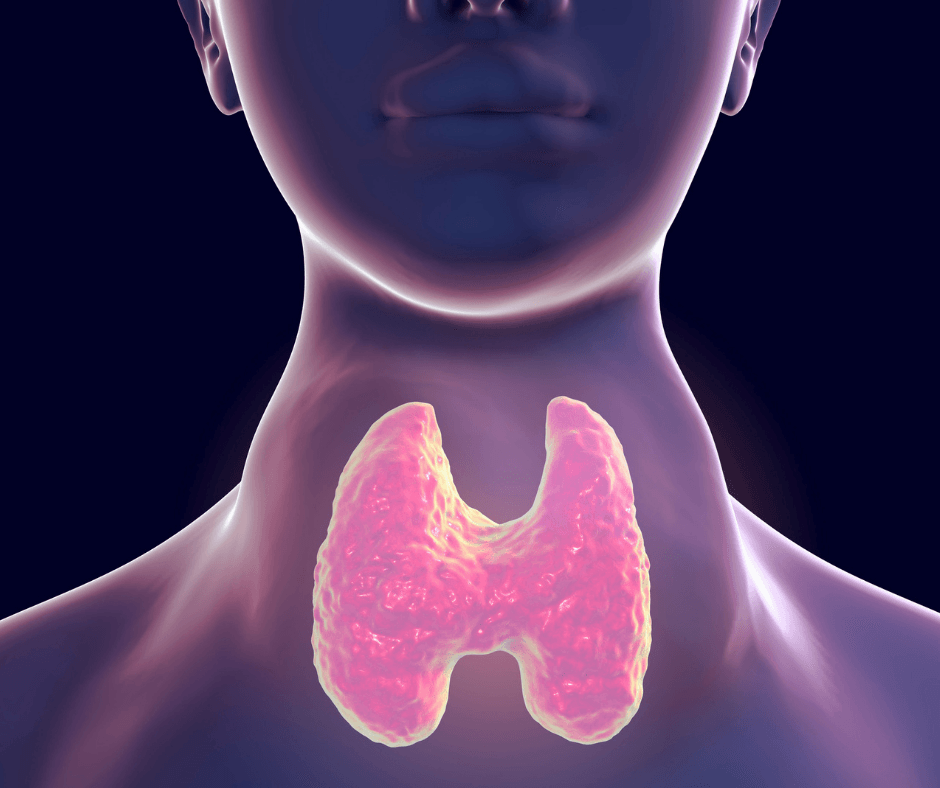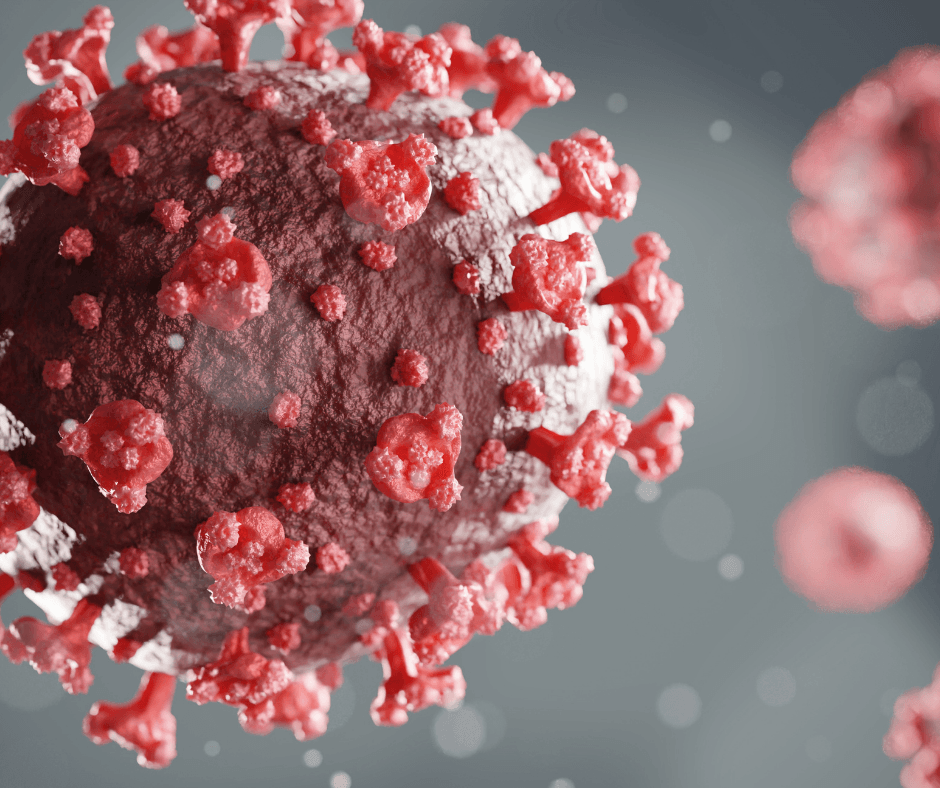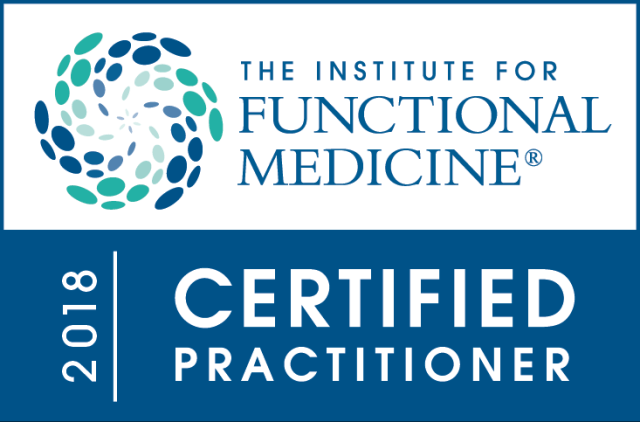Surprising Benefits from Topical Castor Oil
- By Dr. Shannon Evans, DO, IFMCP
- •
- 17 May, 2024
- •
Support your gut health, decrease your inflammation & enhance your beauty

Castor oil has been used for centuries for medicinal purposes.
For some of you, you remember castor oil as something your mom pushed on you as a kid to take a spoonful every day to keep you healthy and away from the doctor’s office!
For some of you, you have heard of taking it orally for constipation and to induce labor.
Did you know castor oil is something you can use topically?
Even though castor oil has been used for centuries as far back as the 16th century BC, there is not much scientific studies to back it up. I have seen a lot of awesome things happen with patients that use castor oil packs, but we just don’t have much scientific data on the use of topical castor oil. I wanted to share the data we do have on topical castor oil.
What is castor oil?
- Derived from the bean of the Ricinus communis plant common in Eastern areas of the world (native to India)
- Through cold processing this yields 33% medicinal quality oil, which is further refined to rid the oil of ricin, a toxic substance to us humans
- Oil is odorless and thick
- High in ricinoleic acid and other fatty acids including oleic acid and linoleum acid.
- Contains antioxidants and antimicrobial compounds
Studies where topical castor oil shines:
- Anti-inflammatory Effects! Studies show it can decrease inflammation and pain from osteoarthritis and rheumatoid arthritis. I have had patients have success from using topical castor oil over all parts of their body that have inflammation and have noticed a significant improvement when using castor oil packs.
- Aid the liver in better functioning including detoxing. Remember the roles of the liver? Your liver is vital and plays a role in nearly all organ systems in the body interacting with your digestive system by creating bile to break down fats and your endocrine system by metabolizing your hormones. The liver is important for cleaning and filtering all your blood! Your liver stores fat soluble vitamins, iron and copper. Your liver also does so much more!
- Stimulate hair growth! Studies are showing that using in combo with other ingredients or by itself, that topical castor oil can stimulate hair growth!
How to use topical castor oil:
- Castor oil packs are a great way to try it out! I have found a company that sells organic castor oil and organic cotton packs. Their packs are less messy and you don’t need to place a heating pad over the pack. If you are targeting your liver & working on detoxing recommend placing the pack on before bed and taking off the pack, when you wake up; since your body does most of its detoxing at night. Check out Queen of Thrones Castor Oil Packs and use code NEWBEGINNINGS10 to receive 10% off.
- You can also make your own pack. If you want the DIY version, soak a piece of cloth (recommend organic) with castor oil and place it over the area of your body you are targeting for 30 minutes up to overnight. You can also place a heating pad or warm towel over your pack, since these helps to enhance the oil’s absorption.
Side effects to topical castor oil:
- Any treatment has potential side effects and risks!
- If you have sensitive skin or have a history of reacting to things topically, recommend trying a very small area with castor oil first to see how your body reacts.
- Allergic reaction. If you notice any signs or symptoms of an allergic reaction please stop using the castor oil immediately!
- May feel worse before feeling better. Especially, if you are using castor oil to help aid in detoxing, you can feel worse before feeling better. Feeling worse with the initial detoxing could last a few days. Please talk with your doctor and see if this is the right treatment plan for you.
- Overall castor oil is usually well tolerated topically and has been show to be safe.
Are you concerned about your health or a loved one's health and not sure where to begin? Schedule a FREE 15 minute strategy call with New Beginnings. Schedule online or email Staff@NewBeginningsFMC.com
References:
https://www.ncbi.nlm.nih.gov/books/NBK551626/
https://pubmed.ncbi.nlm.nih.gov/33515683/
https://www.ncbi.nlm.nih.gov/pmc/articles/PMC8837976/
https://intjnm.com/evidence-for-the-topical-application-of-castor-oil/
https://pubmed.ncbi.nlm.nih.gov/33037703/
https://www.ncbi.nlm.nih.gov/pmc/articles/PMC8230055/
https://intjnm.com/evidence-for-the-topical-application-of-castor-oil/
https://www.ncbi.nlm.nih.gov/pmc/articles/PMC9963650/
https://www.ncbi.nlm.nih.gov/pmc/articles/PMC1781768/
https://pubmed.ncbi.nlm.nih.gov/19288533/
https://pubmed.ncbi.nlm.nih.gov/32427126/
https://drprincetta.com/wp-content/uploads/2016/01/Castor-Oil-Packs-Immunomodulation.pdf

What is the Function & Importance of Your Gut?
First, let’s talk about some specifics of your digestive tract:
- The mouth is the beginning of your digestive tract, where the breakdown of food begins.
- Esophagus starts in your throat and receives food from your mouth when you swallow. It delivers food to your stomach due to a series of muscle contractions known as peristalsis.
- Stomach is a hollow organ that receives & holds the food that is brought from the esophagus. Stomach produces or makes stomach acid to help break down food, and kills pathogens (bacteria, fungus & parasites) that can cause harm to your body.
- Small intestines then receive the stomach contents. Food continues to break down from enzymes released by the pancreas and liver. A series of muscle contractions otherwise known as peristalsis occurs to move food through and mix the food with the digestive enzymes.
- Pancreas secretes digestive enzymes into the first part of the small intestine called the duodenum. It also secretes insulin to metabolize sugar.
- Liver has lots of important functions! It helps with digestion from nutrients absorbed from the small intestine. The liver also makes bile which breaks down fats that are ingested. It also helps to detoxify potentially harmful chemicals (converts toxic substances into harmless substances).
- The gallbladder stores the bile that is made by the liver. It releases bile into the small intestine when you eat fat to help absorb and digest fats.
- Colon or large intestine processes waste. Most of your microbiome is located here!
Next, let’s dive a little deeper into the microbiome , to discuss it’s function and importance…
What is a microbiome? It is genetic material of all the microbes (bacteria, fungi, protozoa & viruses) that live on and inside the human body.
- You are mostly made up of microbes—over 100 trillion. Microbes outnumber your human cells 10 to 1.
- The majority of microbes live in your large intestine.
- Microbiomes can weigh up to as much as 5 pounds!
- What happens with the microbiome? Short chain fatty acids are produced when fiber is fermented in the colon, and these short chain fatty acids are a source of energy for your cells lining the colon. They also metabolize or breakdown foreign substances, certain drugs or chemicals the body does not recognize.
What is the link between your gut & immune system?
Did you know that the majority of your immune system is located in your GUT?
Gut-associated lymphoid tissue or GALT for short makes up 70% of your entire immune system!
This is why your gut plays a central role in your immune health and having a balanced immune system! The GUT is your GATEWAY to Health!
Understanding Inflammation:
Acute or short term inflammation is a part of your body’s appropriate immune system response to an acute injury or illness that is helpful for healing.
Acute inflammation is also an important defense against pathogens (harmful bacteria, parasites or viruses).
Your immune system’s ability to mount an adequate and appropriate inflammatory response is critical for survival! As an example, if you were to cut open your hand, causing a large open wound; you don’t want to have excessive bleeding or get an infection. When acute inflammation takes place due to this trauma—it helps you to clot—stopping the bleeding or decreasing the bleeding. It also takes care of pathogens that there is no longer a barrier against—so you don’t get an infection and then helps to heal your open wound. All which is appropriate and necessary! A balanced immune system is self-limited, beneficial and necessary!
Just to summarize, a balanced immune can identify potentially harmful pathogens or substances, recognize self, assess potential level of threat posed by infectious, toxic or non-self antigens and repair any damage that happens when the immune system takes care of threats.
What about Chronic Inflammation or an Unbalanced Immune System ?
Chronic inflammation happens when there is loss of balance of the immune system causing constant inflammation and destruction to your body.
Long term or chronic inflammation can lead to long term problems such as obesity, thyroid issues, autoimmune conditions, diabetes, heart disease and so much more!
Your immune system is no longer regulated and is out of control!
What are some ways gut issues lead to chronic inflammation?
- Issues with digestion . One of the most common digestive problems is not making enough stomach acid. Are you taking any medications that decrease stomach acid such as proton pump inhibitors (omeprazole, esomeprazole, lansoprazole) or H2 blockers (ranitidine, famotidine, cimetidine)?
- Remember that stomach acid is important for helping with the breakdown of food and killing pathogens such as bacteria, fungus & parasites.
- If you are not making enough stomach acid to help with the break down of food and also let bad bacteria, fungus or parasites survive to hang out in your intestines, which wreaks havoc & causes inflammation!
2 . Leaky Gut also known as intestinal hyperpermeability. This is when the intestinal lumen no longer has tight junctions between your cells. This means that the physical barrier between the digestive tract and blood stream is broken down; making it easy for intestinal contents to enter the blood stream.
- Your immune system will see things that it is not suppose to, such as big food particles, which causes your immune system to react. This can then lead to food sensitivities for example.
- Your immune system will also be exposed to more pathogens.
How Does Leaky Gut Happen?
- NSAIDs such as ibuprofen, steroids, and naproxen. Research shows that NSAIDs cause small intestinal inflammation causing leaky gut and can also be toxic to the cells of your gut.
- Viral, bacterial or protozoan infections
- Gluten
- Inflammation
- Stress
- Cytotoxic drugs
- Xenobiotics such as glyphosate which alters the gut microbiome
- Heavy metals such as mercury
- Antibiotics which alter the microbiome
- Standard American Diet
Chronic Health Issues associated with gut health : If your gut is ticked off, your immune system is gonna be ticked off, causing chronic inflammation that affects your whole body!
Everyone has different genetics and environmental factors, which can lead to a different path of chronic issues you are faced with!
Obesity . Defined as “accumulation of abnormal or excessive fat that may interfere with the maintenance of an optimal state of health.” In the U.S. the population with obesity is 42.2%. There is not any up to date costs for obesity, but in 2008 the estimated annual cost was $147 billion dollars. This was 12 years ago, and now the percentage of obesity has increased from 2008. Can you imagine what the annual cost is now?
Chronic inflammation causes an increase in certain inflammatory mediators (such as TNF-alpha, IL-6) which can lead to inflammation in fat cells (adipose tissue).
Did you know that fat cells (white adipose tissue) is an active participant in regulating your immune system and play a role in inflammation?
Fat cells (adipose tissue) that are exposed to chronic inflammation initially from the gut can then go on to produce more inflammation, which ends up becoming a vicious cycle.
When fat cells become enlarged, the blood supply to these cells may be decreased leading to a limited blood supply to this tissue. When this happens, fat cells or tissue begin to die, which leads to more production of inflammatory mediators! This then leads to overall inflammation in the body that is linked to:
- Abdominal obesity
- Metabolic abnormalities that lead to altered cholesterol and sugar metabolism
- Atherosclerosis than can lead to heart attacks and stroke
- Insulin resistance
- Diabetes
- High blood pressure
Thyroid issues. To really understand why thyroid problems are a big deal, first we must understand the importance of a well functioning thyroid. The thyroid is a small, butterfly-shaped gland located at the base of the neck. It may be small, but it is powerful and plays a vital role in how your body functions! The thyroid can influence all the parts of your body such as your gut, heart, brain, liver, kidneys and much, much more!
Your thyroid needs proper fuel or nutrients to produce thyroid hormone to be able to influence the rest of your body.
The thyroid gland mostly produces T4 (thyroxine) and some T3 (triiodothyronine) that is made up of iodine and tyrosine. T4 contains four iodine atoms and T3 contains three iodine atoms. Conversion of T4 to T3 takes place mostly outside of the thyroid gland. Most of the body responds & recognizes T3.
If the gut is in poor condition, such as a leaky gut, it is going to be difficult to get nutrient absorption to take place from the gut into the rest of the body. The thyroid suffers and does not get all the vital nutrients such as iodine and selenium for proper functioning.
Why else is having a healthy gut important for your thyroid health?
- 20% of the conversion of T4 to T3 happens in the gut!
- Healthy gut microbes can convert T4 to T3.
- Bile acids when secreted into the small intestine following fat consumption increase activity of the enzyme that converts T4 to T3.
Hashimoto’s is an autoimmune disease that affects more women than men. Hashimoto’s is a chronic inflammatory state in which the immune system makes antibodies that attack the thyroid gland. This then damages the thyroid, and if left untreated, can lead to the thyroid not making enough thyroid hormones. If found and treated early, most individuals with Hashimoto’s will not need to be on thyroid replacement medication.
Autoimmune Conditions can occur other places in the body, not just the thyroid. Autoimmune conditions are a result of the immune system attacking the body’s own organs, tissues and cells.
- Affects 23.5 million U.S. citizens
- Leading cause of death & disability
- More than 80 diseases are associated with autoimmune conditions
- Most common: Hashimoto’s, Lupus, Inflammatory Bowel Disease, Rheumatoid Arthritis, Multiple Sclerosis, Type 1 Diabetes, Grave’s Disease, Celiac disease
- Inflammatory bowel disease is chronic inflammation of the GI tract. Prolonged inflammation results in damage to the GI tract. Two types of IBD: Crohn’s disease and ulcerative colitis. Crohn’s disease can affect all parts of the GI tract—mouth to anus. Inflammation may include multiple layers of the walls of the GI tract. Ulcerative colitis affects the large intestine and rectum. Damage is usually patchy. Inflammation is usually present in the innermost layer of the lining of the colon.
Chronic inflammation from leaky gut can also cause seasonal allergy symptoms to be out of control!
Six STEPS to a Healthy Gut & Balanced Immune System:
- Eat a clean, well-balanced diet
- Eat earth made foods. Earth made foods don’t need labels! Try to eat a rainbow of colors in regards to produce to get all your nutrients—each color has different minerals, vitamins etc.
- Stay away from processed foods such as soda and box foods that can cause inflammation. If you are reading ingredients labels and see a big, long word that you have no idea how to pronounce or what it is, your body likely has no idea what it is either, so your immune system mounts a response causing inflammation!
- Buy organic foods. If the budget does not allow for all organic foods, buy all the produce that are listed under the Dirty Dozen organic. The Environmental Working Group has a list of produce with the highest pesticide/herbicide contents: www.EWG.org (strawberries, spinach, kale, nectarines, apples, grapes, peaches, cherries, pears, tomatoes, celery, potatoes, and hot peppers).
2. Stay well-hydrated with water
- Most of your body is made up of water and needs water to work effectively and also flush out toxins.
- In general, drinking 1/2 your weight in ounces per day is enough. For example, a 150 lb person needs ~75 oz of water daily. You may need more water if you are out in the sun or exercising vigorously!
- Also something to consider is how your water rate? What is your water source? How clean is your water? Have you considered filtered water?
3. Rest
- Are you getting quality sleep at night?
- How many hours of sleep do you get at night?
- Do you wake up well rested?
- Sticking to a schedule can be very helpful: going to bed and getting up at the same time everyday.
4. Self care
- Are you taking time daily for yourself?
- Are you taking time to rest and let your body reset?
- Are you taking time for movement or exercise?
- Self care looks different for everyone. Self care is a way for you to relax and do something you enjoy!
5. De-Stress
- This is a part of self care. You need to find ways to stay calm and relaxed.
- Chronic stress all by itself causes inflammation!
- If you have trouble taking time for yourself here are some tips: put self care on your daily schedule—even if it is for 2-5 minutes to start out. Have an accountability partner to make sure you are not ignoring your scheduled self care!
6. Supplements
- Multivitamin: basic minerals and vitamins that your entire body needs to function daily.
- Omega 3’s: anti-inflammatory for your gut and whole body. Your body needs omega 3’s to make cell membranes, make hormones and fuel your brain.
- Probiotics: improve gut health—digestion, absorption and microbiome. Also helps to improve immune health.
Having gut issues or an out of whack immune system? Need a partner in your health journey? Schedule a FREE 15 minute strategy call with New Beginnings. Email Staff@NewBeginningsFMC.com or call 970-305-0101 to schedule.
References:
- https://www.ncbi.nlm.nih.gov/pmc/articles/PMC4566439/--role of gut microbiome
- https://depts.washington.edu/ceeh/downloads/FF_Microbiome.pdf--human microbiome
- https://www.ncbi.nlm.nih.gov/pmc/articles/PMC5507106/
- https://www.cdc.gov/obesity/data/adult.html
- https://journal-inflammation.biomedcentral.com/articles/10.1186/1476-9255-9-1
- https://www.niaid.nih.gov/diseases-conditions/autoimmune-diseases
- https://www.womenshealth.gov/a-z-topics/autoimmune-diseases
- https://www.cdc.gov/ibd/what-is-IBD.htm
- https://www.mayoclinic.org/diseases-conditions/inflammatory-bowel-disease/symptoms-causes/syc-20353315?p=1
- https://www.hsph.harvard.edu/nutritionsource/what-should-you-eat/fats-and-cholesterol/types-of-fat/omega-3-fats/
- https://www.ncbi.nlm.nih.gov/pubmed/16829066
- https://my.clevelandclinic.org/health/articles/7041-the-structure-and-function-of-the-digestive-syst...
- https://www.ncbi.nlm.nih.gov/pubmed/20351569
- https://www.ncbi.nlm.nih.gov/pubmed/12269922
- https://www.ncbi.nlm.nih.gov/pubmed/1555538
- https://academic.oup.com/intimm/article/8/2/231/671078
- https://ec.bioscientifica.com/view/journals/ec/6/4/R52.xml
- https://academic.oup.com/jcem/article/92/11/4180/2598186
- https://www.ncbi.nlm.nih.gov/books/NBK279393/
- http://www.vivo.colostate.edu/hbooks/pathphys/digestion/basics/gi_immune.html
- https://www.thyroid.org/hypothyroidism/
- https://www.thyroid.org/hyperthyroidism/
- https://www.health.harvard.edu/vitamins-and-supplements/health-benefits-of-taking-probiotics
Dr. Shannon's Blog

What is the Function & Importance of Your Gut?
First, let’s talk about some specifics of your digestive tract:
- The mouth is the beginning of your digestive tract, where the breakdown of food begins.
- Esophagus starts in your throat and receives food from your mouth when you swallow. It delivers food to your stomach due to a series of muscle contractions known as peristalsis.
- Stomach is a hollow organ that receives & holds the food that is brought from the esophagus. Stomach produces or makes stomach acid to help break down food, and kills pathogens (bacteria, fungus & parasites) that can cause harm to your body.
- Small intestines then receive the stomach contents. Food continues to break down from enzymes released by the pancreas and liver. A series of muscle contractions otherwise known as peristalsis occurs to move food through and mix the food with the digestive enzymes.
- Pancreas secretes digestive enzymes into the first part of the small intestine called the duodenum. It also secretes insulin to metabolize sugar.
- Liver has lots of important functions! It helps with digestion from nutrients absorbed from the small intestine. The liver also makes bile which breaks down fats that are ingested. It also helps to detoxify potentially harmful chemicals (converts toxic substances into harmless substances).
- The gallbladder stores the bile that is made by the liver. It releases bile into the small intestine when you eat fat to help absorb and digest fats.
- Colon or large intestine processes waste. Most of your microbiome is located here!
Next, let’s dive a little deeper into the microbiome , to discuss it’s function and importance…
What is a microbiome? It is genetic material of all the microbes (bacteria, fungi, protozoa & viruses) that live on and inside the human body.
- You are mostly made up of microbes—over 100 trillion. Microbes outnumber your human cells 10 to 1.
- The majority of microbes live in your large intestine.
- Microbiomes can weigh up to as much as 5 pounds!
- What happens with the microbiome? Short chain fatty acids are produced when fiber is fermented in the colon, and these short chain fatty acids are a source of energy for your cells lining the colon. They also metabolize or breakdown foreign substances, certain drugs or chemicals the body does not recognize.
What is the link between your gut & immune system?
Did you know that the majority of your immune system is located in your GUT?
Gut-associated lymphoid tissue or GALT for short makes up 70% of your entire immune system!
This is why your gut plays a central role in your immune health and having a balanced immune system! The GUT is your GATEWAY to Health!
Understanding Inflammation:
Acute or short term inflammation is a part of your body’s appropriate immune system response to an acute injury or illness that is helpful for healing.
Acute inflammation is also an important defense against pathogens (harmful bacteria, parasites or viruses).
Your immune system’s ability to mount an adequate and appropriate inflammatory response is critical for survival! As an example, if you were to cut open your hand, causing a large open wound; you don’t want to have excessive bleeding or get an infection. When acute inflammation takes place due to this trauma—it helps you to clot—stopping the bleeding or decreasing the bleeding. It also takes care of pathogens that there is no longer a barrier against—so you don’t get an infection and then helps to heal your open wound. All which is appropriate and necessary! A balanced immune system is self-limited, beneficial and necessary!
Just to summarize, a balanced immune can identify potentially harmful pathogens or substances, recognize self, assess potential level of threat posed by infectious, toxic or non-self antigens and repair any damage that happens when the immune system takes care of threats.
What about Chronic Inflammation or an Unbalanced Immune System ?
Chronic inflammation happens when there is loss of balance of the immune system causing constant inflammation and destruction to your body.
Long term or chronic inflammation can lead to long term problems such as obesity, thyroid issues, autoimmune conditions, diabetes, heart disease and so much more!
Your immune system is no longer regulated and is out of control!
What are some ways gut issues lead to chronic inflammation?
- Issues with digestion . One of the most common digestive problems is not making enough stomach acid. Are you taking any medications that decrease stomach acid such as proton pump inhibitors (omeprazole, esomeprazole, lansoprazole) or H2 blockers (ranitidine, famotidine, cimetidine)?
- Remember that stomach acid is important for helping with the breakdown of food and killing pathogens such as bacteria, fungus & parasites.
- If you are not making enough stomach acid to help with the break down of food and also let bad bacteria, fungus or parasites survive to hang out in your intestines, which wreaks havoc & causes inflammation!
2 . Leaky Gut also known as intestinal hyperpermeability. This is when the intestinal lumen no longer has tight junctions between your cells. This means that the physical barrier between the digestive tract and blood stream is broken down; making it easy for intestinal contents to enter the blood stream.
- Your immune system will see things that it is not suppose to, such as big food particles, which causes your immune system to react. This can then lead to food sensitivities for example.
- Your immune system will also be exposed to more pathogens.
How Does Leaky Gut Happen?
- NSAIDs such as ibuprofen, steroids, and naproxen. Research shows that NSAIDs cause small intestinal inflammation causing leaky gut and can also be toxic to the cells of your gut.
- Viral, bacterial or protozoan infections
- Gluten
- Inflammation
- Stress
- Cytotoxic drugs
- Xenobiotics such as glyphosate which alters the gut microbiome
- Heavy metals such as mercury
- Antibiotics which alter the microbiome
- Standard American Diet
Chronic Health Issues associated with gut health : If your gut is ticked off, your immune system is gonna be ticked off, causing chronic inflammation that affects your whole body!
Everyone has different genetics and environmental factors, which can lead to a different path of chronic issues you are faced with!
Obesity . Defined as “accumulation of abnormal or excessive fat that may interfere with the maintenance of an optimal state of health.” In the U.S. the population with obesity is 42.2%. There is not any up to date costs for obesity, but in 2008 the estimated annual cost was $147 billion dollars. This was 12 years ago, and now the percentage of obesity has increased from 2008. Can you imagine what the annual cost is now?
Chronic inflammation causes an increase in certain inflammatory mediators (such as TNF-alpha, IL-6) which can lead to inflammation in fat cells (adipose tissue).
Did you know that fat cells (white adipose tissue) is an active participant in regulating your immune system and play a role in inflammation?
Fat cells (adipose tissue) that are exposed to chronic inflammation initially from the gut can then go on to produce more inflammation, which ends up becoming a vicious cycle.
When fat cells become enlarged, the blood supply to these cells may be decreased leading to a limited blood supply to this tissue. When this happens, fat cells or tissue begin to die, which leads to more production of inflammatory mediators! This then leads to overall inflammation in the body that is linked to:
- Abdominal obesity
- Metabolic abnormalities that lead to altered cholesterol and sugar metabolism
- Atherosclerosis than can lead to heart attacks and stroke
- Insulin resistance
- Diabetes
- High blood pressure
Thyroid issues. To really understand why thyroid problems are a big deal, first we must understand the importance of a well functioning thyroid. The thyroid is a small, butterfly-shaped gland located at the base of the neck. It may be small, but it is powerful and plays a vital role in how your body functions! The thyroid can influence all the parts of your body such as your gut, heart, brain, liver, kidneys and much, much more!
Your thyroid needs proper fuel or nutrients to produce thyroid hormone to be able to influence the rest of your body.
The thyroid gland mostly produces T4 (thyroxine) and some T3 (triiodothyronine) that is made up of iodine and tyrosine. T4 contains four iodine atoms and T3 contains three iodine atoms. Conversion of T4 to T3 takes place mostly outside of the thyroid gland. Most of the body responds & recognizes T3.
If the gut is in poor condition, such as a leaky gut, it is going to be difficult to get nutrient absorption to take place from the gut into the rest of the body. The thyroid suffers and does not get all the vital nutrients such as iodine and selenium for proper functioning.
Why else is having a healthy gut important for your thyroid health?
- 20% of the conversion of T4 to T3 happens in the gut!
- Healthy gut microbes can convert T4 to T3.
- Bile acids when secreted into the small intestine following fat consumption increase activity of the enzyme that converts T4 to T3.
Hashimoto’s is an autoimmune disease that affects more women than men. Hashimoto’s is a chronic inflammatory state in which the immune system makes antibodies that attack the thyroid gland. This then damages the thyroid, and if left untreated, can lead to the thyroid not making enough thyroid hormones. If found and treated early, most individuals with Hashimoto’s will not need to be on thyroid replacement medication.
Autoimmune Conditions can occur other places in the body, not just the thyroid. Autoimmune conditions are a result of the immune system attacking the body’s own organs, tissues and cells.
- Affects 23.5 million U.S. citizens
- Leading cause of death & disability
- More than 80 diseases are associated with autoimmune conditions
- Most common: Hashimoto’s, Lupus, Inflammatory Bowel Disease, Rheumatoid Arthritis, Multiple Sclerosis, Type 1 Diabetes, Grave’s Disease, Celiac disease
- Inflammatory bowel disease is chronic inflammation of the GI tract. Prolonged inflammation results in damage to the GI tract. Two types of IBD: Crohn’s disease and ulcerative colitis. Crohn’s disease can affect all parts of the GI tract—mouth to anus. Inflammation may include multiple layers of the walls of the GI tract. Ulcerative colitis affects the large intestine and rectum. Damage is usually patchy. Inflammation is usually present in the innermost layer of the lining of the colon.
Chronic inflammation from leaky gut can also cause seasonal allergy symptoms to be out of control!
Six STEPS to a Healthy Gut & Balanced Immune System:
- Eat a clean, well-balanced diet
- Eat earth made foods. Earth made foods don’t need labels! Try to eat a rainbow of colors in regards to produce to get all your nutrients—each color has different minerals, vitamins etc.
- Stay away from processed foods such as soda and box foods that can cause inflammation. If you are reading ingredients labels and see a big, long word that you have no idea how to pronounce or what it is, your body likely has no idea what it is either, so your immune system mounts a response causing inflammation!
- Buy organic foods. If the budget does not allow for all organic foods, buy all the produce that are listed under the Dirty Dozen organic. The Environmental Working Group has a list of produce with the highest pesticide/herbicide contents: www.EWG.org (strawberries, spinach, kale, nectarines, apples, grapes, peaches, cherries, pears, tomatoes, celery, potatoes, and hot peppers).
2. Stay well-hydrated with water
- Most of your body is made up of water and needs water to work effectively and also flush out toxins.
- In general, drinking 1/2 your weight in ounces per day is enough. For example, a 150 lb person needs ~75 oz of water daily. You may need more water if you are out in the sun or exercising vigorously!
- Also something to consider is how your water rate? What is your water source? How clean is your water? Have you considered filtered water?
3. Rest
- Are you getting quality sleep at night?
- How many hours of sleep do you get at night?
- Do you wake up well rested?
- Sticking to a schedule can be very helpful: going to bed and getting up at the same time everyday.
4. Self care
- Are you taking time daily for yourself?
- Are you taking time to rest and let your body reset?
- Are you taking time for movement or exercise?
- Self care looks different for everyone. Self care is a way for you to relax and do something you enjoy!
5. De-Stress
- This is a part of self care. You need to find ways to stay calm and relaxed.
- Chronic stress all by itself causes inflammation!
- If you have trouble taking time for yourself here are some tips: put self care on your daily schedule—even if it is for 2-5 minutes to start out. Have an accountability partner to make sure you are not ignoring your scheduled self care!
6. Supplements
- Multivitamin: basic minerals and vitamins that your entire body needs to function daily.
- Omega 3’s: anti-inflammatory for your gut and whole body. Your body needs omega 3’s to make cell membranes, make hormones and fuel your brain.
- Probiotics: improve gut health—digestion, absorption and microbiome. Also helps to improve immune health.
Having gut issues or an out of whack immune system? Need a partner in your health journey? Schedule a FREE 15 minute strategy call with New Beginnings. Email Staff@NewBeginningsFMC.com or call 970-305-0101 to schedule.
References:
- https://www.ncbi.nlm.nih.gov/pmc/articles/PMC4566439/--role of gut microbiome
- https://depts.washington.edu/ceeh/downloads/FF_Microbiome.pdf--human microbiome
- https://www.ncbi.nlm.nih.gov/pmc/articles/PMC5507106/
- https://www.cdc.gov/obesity/data/adult.html
- https://journal-inflammation.biomedcentral.com/articles/10.1186/1476-9255-9-1
- https://www.niaid.nih.gov/diseases-conditions/autoimmune-diseases
- https://www.womenshealth.gov/a-z-topics/autoimmune-diseases
- https://www.cdc.gov/ibd/what-is-IBD.htm
- https://www.mayoclinic.org/diseases-conditions/inflammatory-bowel-disease/symptoms-causes/syc-20353315?p=1
- https://www.hsph.harvard.edu/nutritionsource/what-should-you-eat/fats-and-cholesterol/types-of-fat/omega-3-fats/
- https://www.ncbi.nlm.nih.gov/pubmed/16829066
- https://my.clevelandclinic.org/health/articles/7041-the-structure-and-function-of-the-digestive-syst...
- https://www.ncbi.nlm.nih.gov/pubmed/20351569
- https://www.ncbi.nlm.nih.gov/pubmed/12269922
- https://www.ncbi.nlm.nih.gov/pubmed/1555538
- https://academic.oup.com/intimm/article/8/2/231/671078
- https://ec.bioscientifica.com/view/journals/ec/6/4/R52.xml
- https://academic.oup.com/jcem/article/92/11/4180/2598186
- https://www.ncbi.nlm.nih.gov/books/NBK279393/
- http://www.vivo.colostate.edu/hbooks/pathphys/digestion/basics/gi_immune.html
- https://www.thyroid.org/hypothyroidism/
- https://www.thyroid.org/hyperthyroidism/
- https://www.health.harvard.edu/vitamins-and-supplements/health-benefits-of-taking-probiotics










